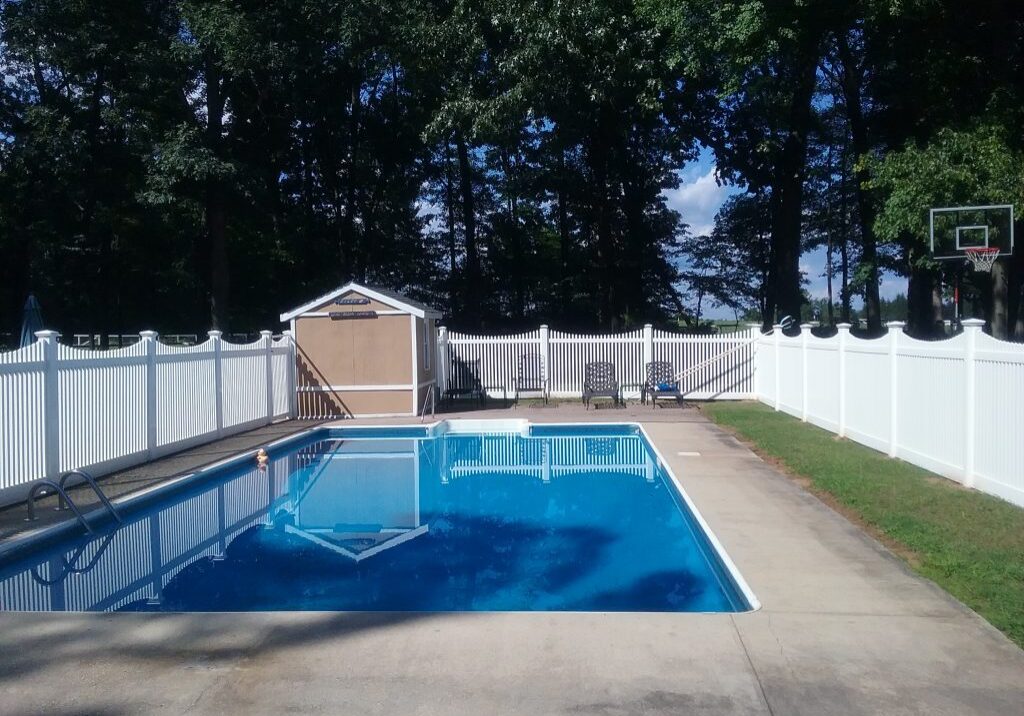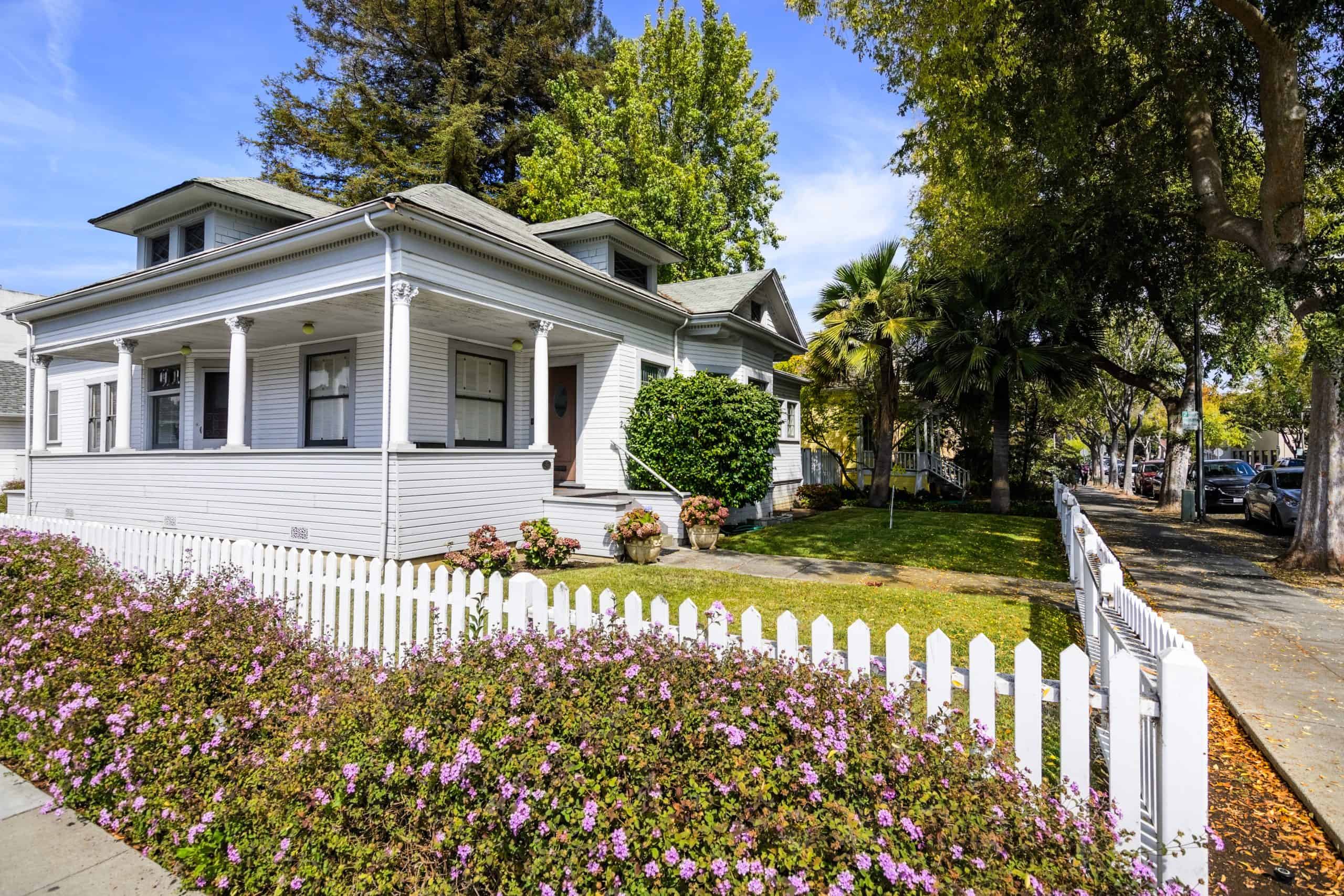All Categories
Featured

As sustainability comes to be a progressively essential consideration for property owners, more people are turning to green fence materials. Whether you're building a fence for personal privacy, safety and security, or aesthetic purposes, picking products that decrease environmental impact is a wonderful means to add to a healthier world. Right here's a consider the leading green fence materials available today and their advantages.
- Bamboo Fence: Sustainable and fast-growing. Bamboo is among one of the most lasting fence materials on the market. Unlike conventional timber, bamboo is incredibly fast-growing, which indicates it can be collected without diminishing woodlands. This makes it a highly renewable source, with some species expanding up to 3 feet in a solitary day.
Ecological Benefits: Bamboo takes in more carbon dioxide than lots of other plants, aiding to offset greenhouse gases. Its fast development rate suggests it can be harvested on a regular basis, making it a renewable material. Durability: Bamboo fencings are naturally resistant to parasites and decay, especially when correctly dealt with, minimizing the demand for chemical treatments. Aesthetic Appeal: Bamboo gives a special, natural appearance that complements both standard and modern landscaping designs. While bamboo is a terrific alternative, it's essential to ensure that the bamboo made use of is responsibly sourced to avoid adding to ecological deterioration.
- Recycled Metal Fence: Long Lasting and Reusable. Recycled metal fencing, such as aluminum or steel, uses an environment-friendly alternative to conventional wood fences. These metals are usually made from recycled materials, decreasing the requirement for brand-new mining and the ecological impact connected with extracting resources.

Ecological Advantages: Steels like aluminum and steel are 100% recyclable, indicating they can be reused and repurposed forever without losing quality. Toughness: Metal fencings are extremely long lasting, immune to weather, insects, and put on, making them a lasting option that does not require to be replaced often. Reduced Upkeep: Recycled steel fences require very little maintenance and don't need to be painted or secured routinely, decreasing the demand for additional chemicals. The major downside is that metal fencings might not offer the same personal privacy as timber or vinyl options, as they can have gaps depending upon the design.
- Recycled Wood Secure Fencing: All-natural and sustainable. For those that like the classic look of wood however desire an environment-friendly option, recycled timber fence is an outstanding selection. This product is made from redeemed wood from old structures, pallets, and even furniture, drawing away these products from landfills.
Environmental Advantages: Utilizing recycled timber avoids the demand to cut down new trees, assisting to minimize and conserve forests logging. Aesthetic Allure: Recycled timber supplies a rustic, all-natural look and can be tailored to suit any type of home design. Sustainability: Since it is sourced from existing wood products, recycled timber does not need new processing, which minimizes power consumption and carbon emissions. While recycled timber fencings are a green choice, they may call for even more upkeep over time than steel or bamboo fences, as timber can be susceptible to decay and insects if not correctly dealt with.

- Living Fencings: Natural and Green. Living fencings, which are made from dense growings like bushes, bushes, or trees, use a green and totally natural option to typical secure fencing products. These fences not just provide personal privacy yet likewise improve your garden with attractive plant.
Environmental Benefits: Living fences can take in co2, give habitat for wildlife, and enhance air high quality. Sound Reduction: Dense growings can serve as natural , lowering website traffic noise or various other undesirable noises. Visual Appeal: They include a soft, natural visual to any kind of residential property and can be customized to fit any type of style. While living fences are environment-friendly, they do require routine upkeep such as pruning, watering, and sometimes pest control.
- Hemp Secure Fencing: Biodegradable and Solid. Hemp is one more lasting material that has made its method into the fence sector. Hemp fences are made from strong hemp fibers that are woven with each other to produce environmentally friendly and resilient panels.
Ecological Advantages: Hemp expands rapidly and calls for marginal water, making it a resource-efficient plant. The product is biodegradable and can be composted when no longer needed. Stamina and Durability: Hemp fence is surprisingly strong and weather-resistant, making it ideal for numerous environments. Sustainability: Hemp farming requires fewer chemicals and plant foods than traditional plants, making it an environmentally liable choice. Hemp fencing may not be as extensively offered as other materials, depending on your location.
Verdict: Lasting Choices for Every Demand. Selecting environmentally friendly secure fencing materials is a terrific way to minimize your environmental impact while still accomplishing the privacy, security, and aesthetic you prefer. From fast-growing bamboo to recycled wood and metal, there are a selection of lasting options that can help you develop a lovely, functional fence while sustaining a much healthier world. By thinking about aspects such as longevity, upkeep, and ecological influence, you can select the very best environmentally friendly fencing material for your needs and lifestyle.
Latest Posts
Discover the Leading Auto Repair Discounts in Montclare, Chicago
Published en
1 min read
Recognizing When Your Car Needs Skilled Vehicle Service at Montclare Auto Repair
Published en
1 min read
How to Know When Your Car Needs Expert Auto Repair at Montclare Auto Repair
Published en
1 min read
More
Latest Posts
Discover the Leading Auto Repair Discounts in Montclare, Chicago
Published May 24, 25
1 min read
Recognizing When Your Car Needs Skilled Vehicle Service at Montclare Auto Repair
Published May 24, 25
1 min read
How to Know When Your Car Needs Expert Auto Repair at Montclare Auto Repair
Published May 24, 25
1 min read